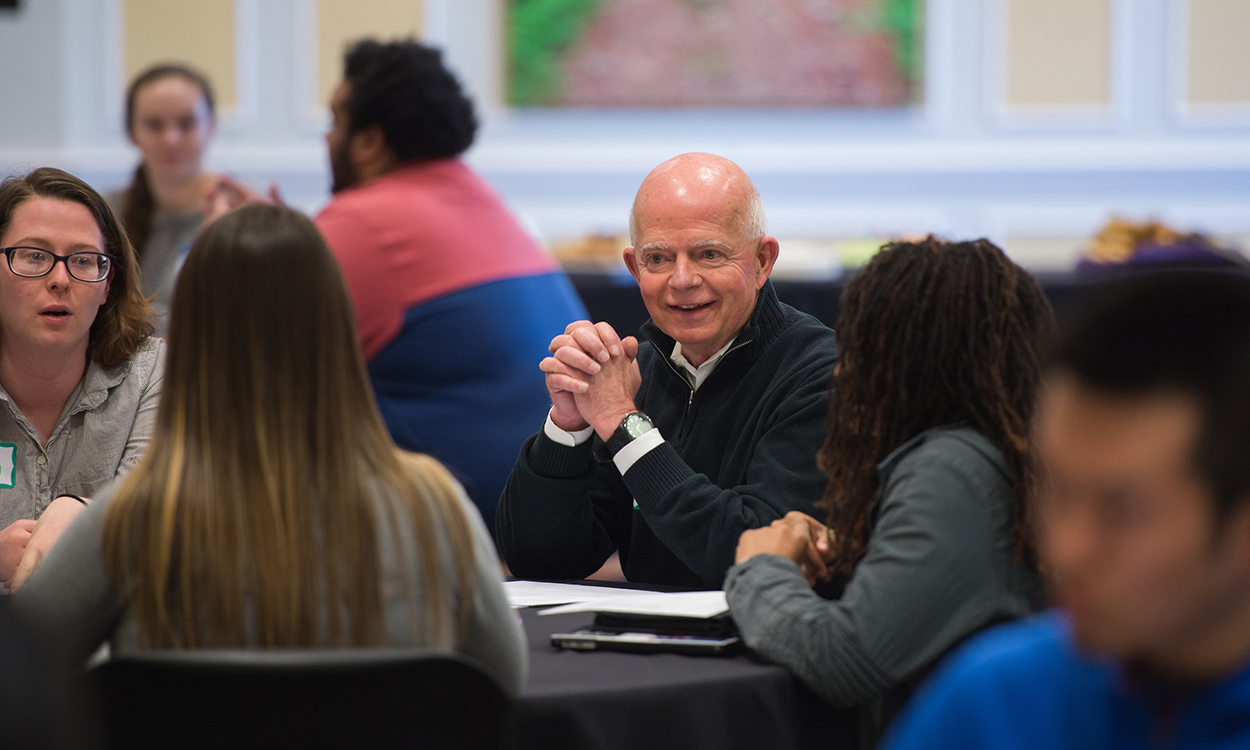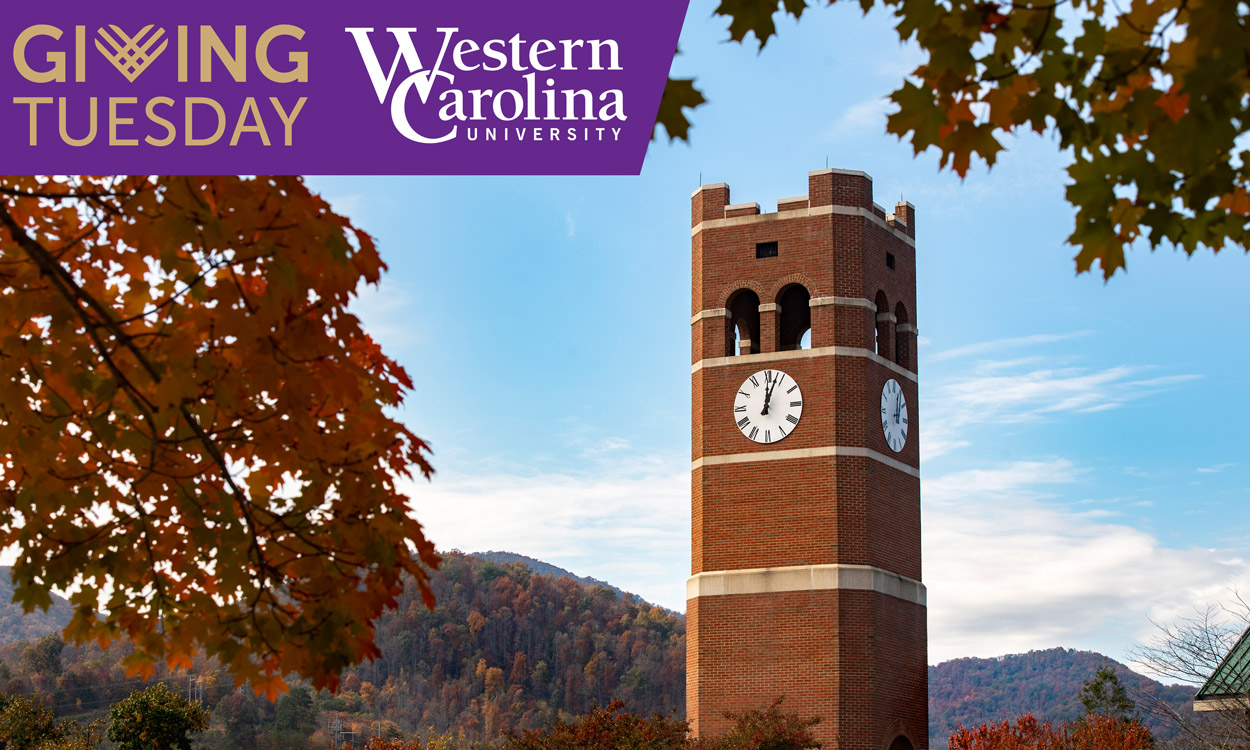Alumna sees the world thanks to her degree, but finds there’s no place like home
By Melanie Threlkeld McConnell
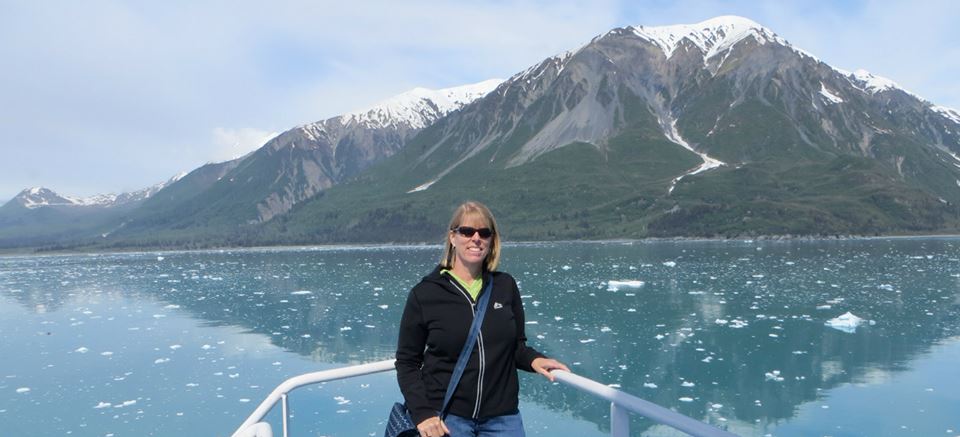
The slogan sold her: “Join the Navy, see the world.” But it was Western Carolina University’s biology and environmental health programs that got her there.
“I liked science and math, but I didn’t know what I wanted to do,” said Laura Rabb, who graduated from WCU with a degree in biology with an emphasis in environmental health in 1989. “So, I went to talk to the environmental health program professor and he said, ‘take a class and if you don’t like it, it’s an elective.’”
Rabb did enjoy the environmental health class, so much so she chose a career in the field thanks to a Navy medical recruiter—a nurse—who made a persuasive pitch in one of her environmental health classes. “The environmental health department was really good about bringing in professional people who had degrees in environmental health and showing us all the things that people could do with that degree, and I thought it was so interesting.”
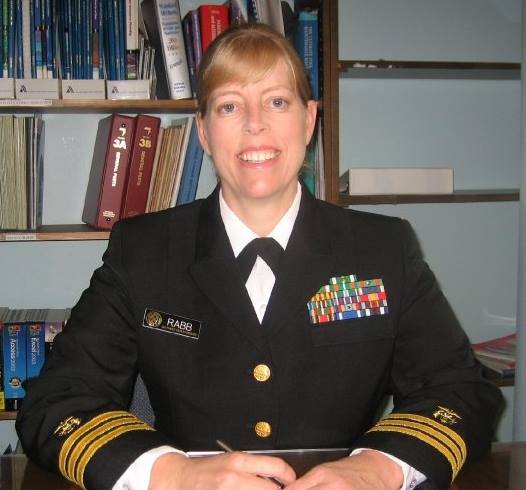
Rabb applied to join the Navy while still a student and was commissioned an ensign two weeks before graduating. Two weeks after she graduated, she was at Navy Officer Indoctrination School in Newport, Rhode Island. “I grew up in this really small town, Keystone Heights, Florida, which only had one traffic light; now it has two. It was very rural,” she said. “I had always wanted to go see more and I thought I could do this for three years.”
Her three years turned in to 7 1/2, working as an industrial hygiene officer at Naval Hospital Bremerton, Washington, Navy Environmental Preventive Medicine Unit No. 7 in Naples, Italy, and as safety officer on the USS Simon Lake (AS-33) in La Maddalena, Italy. What initially had drawn Rabb to industrial hygiene was its similarity to chemical engineering, which she had pursued as a junior college student in Florida before she transferred to WCU in 1986 and where her interest turned to biology.
“One class I took was industrial hygiene and that was one that really interested me at the time. There was the chemistry and the science together,” she said. “Industrial hygienists identify, measure and control workplace hazards, such as air monitoring for chemical exposure, and selecting the right respirator or ventilation controls. It’s about controlling occupational hazards. That’s what my job was in the Navy.”
At the urging of a former colleague, Rabb left the Navy in 1996 for the U.S. Public Health Service, where she worked as a safety and environmental health officer and an environmental health program manager for the U.S. Coast Guard in Honolulu; Norfolk, Virginia; and Washington, D.C.
In 2005, Rabb accepted a job with the Centers for Disease Control’s Vessel Sanitation Program, as its assistant deputy chief, in Fort Lauderdale, Florida. “VSP does the public health inspections of the cruise ships that operate on international itineraries and enter U.S. ports. I stayed at VSP until I retired from the Public Health Service in 2013,” Rabb said.
Just before she retired, Rabb had been offered a job as an industrial hygienist with the FBI. “They were doing my background check and security clearances during my last months on active duty when a federal hiring freeze happened and the job fell through. A cruise line contacted me and asked if I would do some consulting work with them. I set up an LLC and slowly picked up some other cruise lines and shipyards as clients.”
Which led to her current position as fleet sanitation director for MSC Cruise Management Limited in Uxbridge, England. “I’m basically the public health director for the cruise line,” said Rabb, who is based in London. “It’s mostly prevention.”
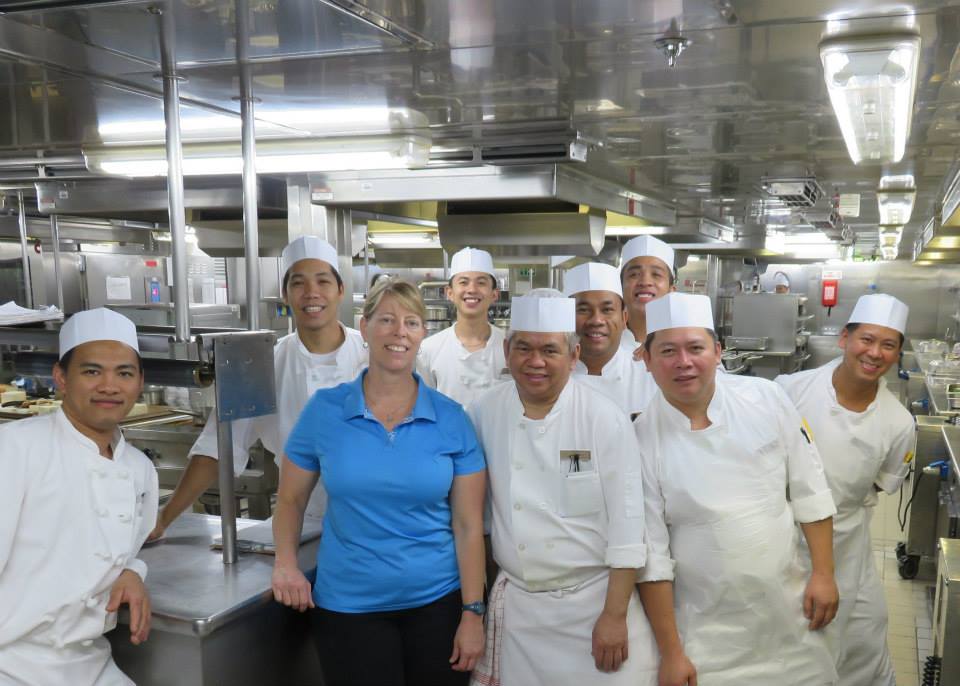
As part of the corporate medical services to provide public health support to the fleet, Rabb and a team of shipboard public health officers ensure standards are met for the fleet’s recreational and potable water systems, food preparation areas, child activity centers, outbreak prevention procedures and more. “We write and update policies and procedures for all of these things to make sure we meet the international standards and we don’t get people sick,” she said. “If we had a food-borne illness outbreak, we would be involved in the investigation to see what might have caused it and to see what our sourcing is.” These days, her time has been taken up by the pandemic and writing policies for ships in layup and the plans for ships to sail again.
As a world traveler with a vested and professional interest in environmental health, Rabb has established the Advancement of Environmental Health Endowed Scholarship to support a WCU student majoring in environmental health. “I got my master’s degree at George Washington University and there you can give directly to the public health master’s degree scholarship program,” she said. “I wanted to do the same at Western, but there was no scholarship for environmental health majors. The environmental health program provides students with valuable skills, even more evident in today’s world, and I wanted to do something to promote and assist students who choose to pursue this as a career.”
Rabb said she’s certainly met her goal to travel and see the world, a notion that took hold more than 30 years ago and one she’s grateful she followed. But after 2 1/2 years in London, Rabb said there is one more trip she wants to take — back home to Florida, for good. “I like living here, but being away from family has been hard, and several family members have died since I’ve been here. They were older. But you see the pictures of everybody at the receptions and everybody’s there but me. Maybe I’m getting a little homesick.”
Discover how you can support the Environmental Health Scholarship, which provides support for sophomores, juniors, and seniors majoring in environmental health, at give.wcu.edu/ehs.
